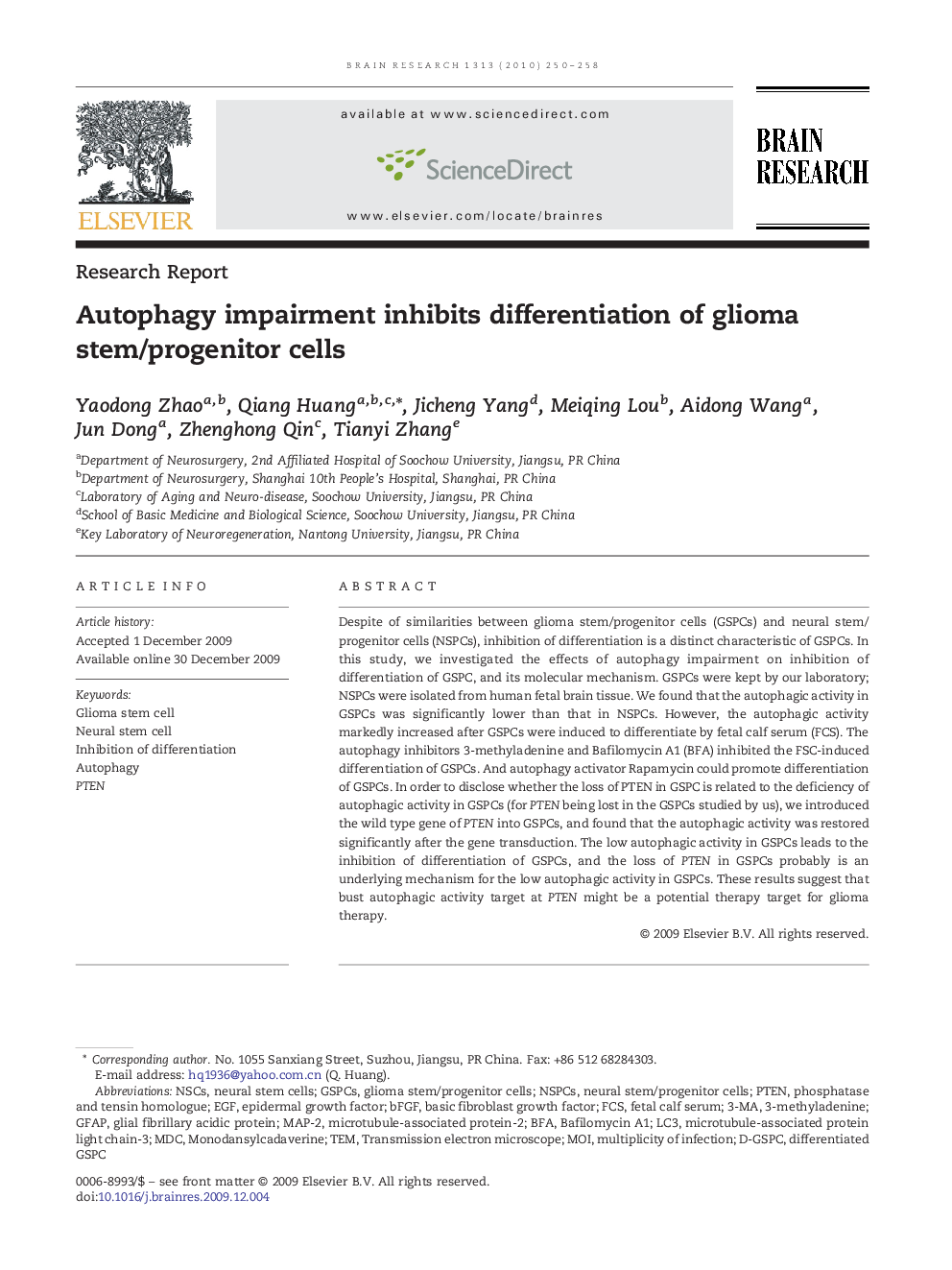| Article ID | Journal | Published Year | Pages | File Type |
|---|---|---|---|---|
| 4327316 | Brain Research | 2010 | 9 Pages |
Despite of similarities between glioma stem/progenitor cells (GSPCs) and neural stem/progenitor cells (NSPCs), inhibition of differentiation is a distinct characteristic of GSPCs. In this study, we investigated the effects of autophagy impairment on inhibition of differentiation of GSPC, and its molecular mechanism. GSPCs were kept by our laboratory; NSPCs were isolated from human fetal brain tissue. We found that the autophagic activity in GSPCs was significantly lower than that in NSPCs. However, the autophagic activity markedly increased after GSPCs were induced to differentiate by fetal calf serum (FCS). The autophagy inhibitors 3-methyladenine and Bafilomycin A1 (BFA) inhibited the FSC-induced differentiation of GSPCs. And autophagy activator Rapamycin could promote differentiation of GSPCs. In order to disclose whether the loss of PTEN in GSPC is related to the deficiency of autophagic activity in GSPCs (for PTEN being lost in the GSPCs studied by us), we introduced the wild type gene of PTEN into GSPCs, and found that the autophagic activity was restored significantly after the gene transduction. The low autophagic activity in GSPCs leads to the inhibition of differentiation of GSPCs, and the loss of PTEN in GSPCs probably is an underlying mechanism for the low autophagic activity in GSPCs. These results suggest that bust autophagic activity target at PTEN might be a potential therapy target for glioma therapy.
